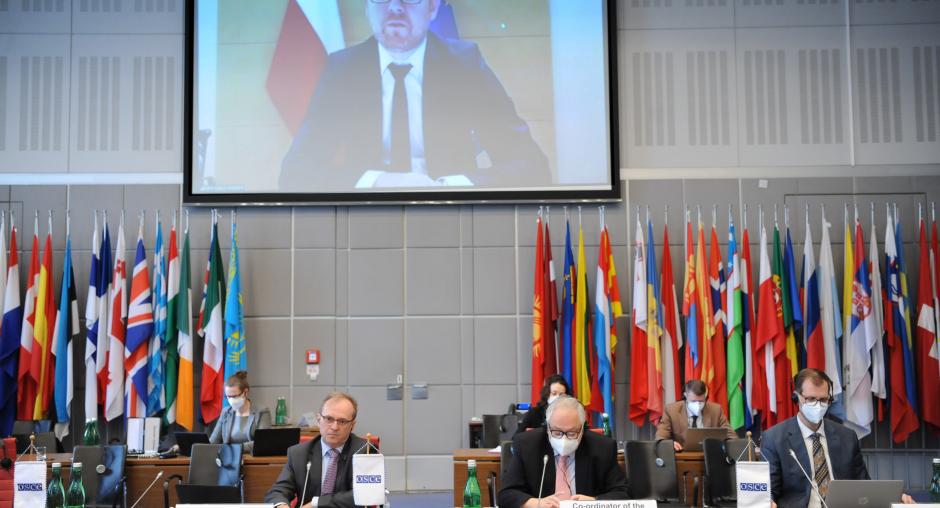Pandemic demands co-ordinated recovery, say participants at OSCE Mediterranean Partnership discussion

VIENNA, 16 March 2021 – Post-COVID-19 recovery, opportunities and challenges for security and regional co-operation, was the focus of today’s OSCE Mediterranean Partnership of Co-operation Group meeting, the first under the Polish Chairmanship, chaired by Ambassador Adam Hałaciński, Permanent Representative of Poland to the OSCE.
Marcin Przydacz, Deputy Minister of Foreign Affairs of Poland, declared in his opening statement that Poland would work closely with the Mediterranean Partners, participating States and OSCE institutions, and it stood ready to build on the achievements of previous Chairs to enhance further the co-operation between the OSCE and the Mediterranean region.
“We are interested in tangible results: in projects that help to resolve problems on the ground, discussions that impact our future actions, encounters that build trust and improve our everyday co-operation,” said Przydacz.
The OSCE Mediterranean Partnership is built on the indivisibility of security between the OSCE and Mediterranean regions – a notion that the pandemic-related challenges has made even more important and meaningful.
OSCE Secretary General Helga Maria Schmid called for full appreciation of the OSCE’s unique position as the only regional arrangement offering North American, European, and Asian countries a common platform to address strategic and security developments in the Mediterranean. “The post-COVID recovery should be synonymous with solidarity. Each of our countries will chart their individual strategies. But if we do not co-ordinate our responses, we will not defeat the virus, and we will not prevent similar crises in the future,” said Schmid.
Participants focused on solidarity, building bridges between countries on all shores, the importance of economic exchange, knowledge sharing, and human connections to mitigate the pandemic’s detrimental impact on employment and economic opportunity.
Ulrika Funered, Ambassador and Head of the Permanent Delegation of Sweden to the OSCE, Chair of the Permanent Council, said that inclusive policy approaches and suitable legislative measures are critical to safeguarding women’s economic opportunities, both during and after the COVID-19 pandemic. “In the coming years, we need to rebuild our societies and our economies for the better. If we want to grow and thrive in the post-COVID-19 world, we need a more inclusive approach that unlocks all talents, including those of women.”
Ambassador Igli Hasani, Permanent Representative of Albania to the OSCE, said: “Albania is optimistic about the future of the OSCE Mediterranean Partnership, not only based on past achievements – even during the difficulties of 2020, the Partnership proved to be resilient. The Partnership has greatly benefited in recent years from continuity in the topics of political dialogue across the three dimensions and from a steady political investment by successive Chairs.”
The OSCE Secretariat continues to support the Partnership proactively. In 2021, among other areas, the Partnership will focus on combating human trafficking, addressing transnational organized crime and environmental threats.
